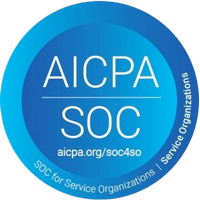The secret to fixing employee turnover in healthcare? We can’t claim there’s one answer, but effective shift management is definitely a part of it.
Imagine an employee—let’s call them R. R is a CNA at a skilled nursing facility, but lately they’ve been feeling overworked and overstressed, and they’re seriously considering quitting. R is almost always scheduled with brand new CNAs, forcing them to step into a leadership position they’re uncomfortable with. On top of that, despite sharing their preferences with their manager multiple times, they’re often scheduled for shifts that conflict with their personal life. When R is scheduled to work through their daughter’s graduation party, it’s the final straw. Feeling worn out and disrespected, they give their notice.
Now, let’s follow another CNA named L. L is at a different facility, and their employer has several shift management tools that help protect L’s time. For example, L’s employer uses a scheduling platform that makes it easy to anticipate staffing needs, so L is far less likely to be overwhelmed. L is also able to internally bid for shifts, meaning they have more control over their own schedule. They’re able to do their job without worrying about the logistics, and as a result, they’re far less likely to quit.
How do you ensure that all your employees have L’s experience? Let’s break it down.
What Is Shift Management Software?
Shift management software is any platform that streamlines employee scheduling. Some common features include…
- Automated Scheduling. Shift management software may automate the scheduling process, taking into account employee availability, skills, and preferences. This reduces the time and effort required to create schedules manually.
- Real-time Updates. With real-time updates, employees and managers can stay informed about any schedule changes. This minimizes confusion and reduces the risk that employees will miss shifts.
- Time-Off Management. The software allows employees to request time off and enables managers to efficiently approve or deny PTO requests.
- Reporting and Analytics. Shift management software can provide valuable insights through reporting and analytics tools. Managers can use this data to make informed decisions about staffing and scheduling.
- Time Clocks. Some software solutions integrate time clock functionality, making it easy for employees to clock in and out accurately.
How Shift Management Software Reduces Turnover
By implementing shift management that proactively addresses common pain points, you can create a more stable and satisfied workforce. Here are some of the benefits of using a strong shift management platform.
1. Reduced Overwork and Burnout
Shift software often uses automation to fairly distribute work among employees. This means that no one is consistently overworked, which reduces the risk of burnout. The software can also track and limit overtime hours for each employee, ensuring that they have time for rest and recovery.
In 2022, 81% of nurses said that they felt burnt out at their jobs. Effective shift management can help prevent burnout, leading to better employee retention.
2. No More Overstaffing or Understaffing
Overstaffing can be frustrating for part-time or contract employees who aren’t scheduled as much as they’d like. Not to mention, it can have a profound impact on an organization’s bottom line. On the other hand, understaffing can lead to chaotic work environments and increased burnout. But shift management software ensures you can select the right mix of staff for your open shifts.
Scheduling software provides insights into staffing needs, allowing managers to balance their teams effectively. For example, managers can easily see if a certain time slot is consistently understaffed. They can re-allocate staff, or let the hiring team know that they should look for candidates who can work at that specific time. When employees have the support they need, they can perform their jobs without feeling overwhelmed.
3. Streamlined Employee Communications
Effective communication is vital in any workplace. In healthcare, it can be a matter of life and death. If someone isn’t able to work their shift, it’s vital that the team adapt in order to provide optimal patient care. Shift management software enhances communication through features like real-time updates and shift change notifications. These tools keep employees informed about any changes to their schedules, reducing confusion and frustration.
Additionally, shift management software provides mobile accessibility. This ensures that employees can access their schedules and communicate with their managers on the go. Mobile accessibility means that employees can easily check their schedules, make adjustments, or communicate with their supervisors even when they are not at their desks or workplace. It promotes real-time communication and responsiveness, helping in resolving scheduling conflicts or addressing urgent issues promptly.
Shift Management With Apploi
Incorporating effective shift management practices into your organization can greatly reduce employee turnover. The right software not only simplifies scheduling but also promotes a healthier work-life balance, reduces burnout, and maximizes your staffing budget.
Apploi Schedule is designed to help you optimize your scheduling processes, improve employee satisfaction, and ultimately decrease turnover. Discover how Apploi can support your shift management needs and create a happier, more engaged workforce. Schedule a demo today.





